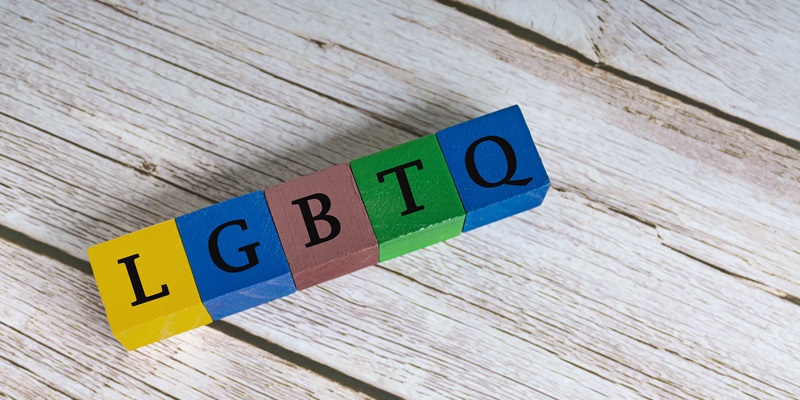The intersection of LGBTQ+ rights and religious accommodations in the workplace has become increasingly complex, especially in light of recent U.S. Supreme Court rulings like “Bostock v. Clayton County” and “Groff v. DeJoy”. These landmark decisions have further delineated employers’ responsibilities under Title VII of the Civil Rights Act of 1964, necessitating that they tread a fine line between protecting LGBTQ+ employees and respecting religious expression. A pertinent case that encapsulates these tensions is *Barrett v. Vilsack*. This case underscores the necessity for employers to find a compliant balance while implementing diversity, equity, and inclusion (DEI) initiatives.
The EEOC’s Stance in Barrett v. Vilsack
Religious Discrimination Claim Rejected
In “Barrett v. Vilsack”, the scenario revolves around an engineer at the U.S. Department of Agriculture (DA) who sought exemption from mandatory DEI training that included LGBTQ+ issues, citing his religious beliefs as the reason for his request. The DA denied this request and additionally threatened disciplinary action against the engineer, prompting him to file a religious discrimination complaint. The Equal Employment Opportunity Commission (EEOC) ultimately rejected the complaint on two main grounds. First, the engineer failed to demonstrate how his religious beliefs directly conflicted with attending the training. The training sessions were described as professional and respectful and did not compel the engineer to alter or renounce his beliefs.
The EEOC held that allowing the engineer to bypass this training would place an undue burden on the employer. Title VII mandates employers to take proactive measures to prevent discriminatory harassment, which includes enforcing mandatory training sessions. The engineer’s request to be excused from portions of the training would contravene this obligation, thus burdening the DA with a compliance risk. While this decision by the EEOC is not binding on federal courts, it provides crucial insights into how the EEOC balances the need for religious accommodations with the necessity of addressing and preventing LGBTQ+ discrimination and harassment in the workplace.
Implications for Employers
This EEOC decision highlights a trend wherein the Commission seems to be prioritizing workplace inclusivity and non-discrimination over individual requests for religious accommodations that interfere with mandated DEI training. As a result, employers are required to perform a delicate balancing act when implementing DEI initiatives while simultaneously respecting employees’ religious beliefs. This decision suggests that the EEOC may continue to lean towards maintaining mandatory training programs to ensure compliance with anti-discrimination laws, even if it means limiting religious accommodations.
Employers must be prepared to tighten their requirements for granting such religious exemptions. If employees can easily opt out of mandatory DEI training, it may signal to others that such initiatives are non-essential, undermining the effectiveness of combating workplace discrimination. The EEOC’s stance underscores that maintaining a discrimination-free workplace is not only a legal requirement but also a moral and ethical obligation that should not be compromised.
Legal Guidance for Employers
Navigating Legal Obligations
Employers need to develop comprehensive strategies to meet both sets of legal obligations—protecting employees from discrimination and respecting religious freedoms. Given the nuanced nature of these legal requirements, businesses are advised to seek legal guidance when designing and implementing DEI training programs. Sound legal counsel can help employers craft policies that effectively balance the competing rights without undermining the inclusivity of the workplace. Additionally, proactive consultation with legal experts can minimize the potential liability associated with non-compliance.
Furthermore, it is essential for employers to establish clear, written guidelines regarding DEI training and accommodation requests. These guidelines should outline the process for requesting religious accommodations, the criteria for evaluating such requests, and the potential implications for both the requesting employee and the broader workplace environment. By being transparent and consistent in their policies, employers can foster an environment of trust and collaboration while ensuring compliance with Title VII obligations.
The Importance of a Holistic Approach
The intersection of LGBTQ+ rights and religious accommodations in the workplace has grown increasingly complex, especially in light of recent U.S. Supreme Court decisions such as “Bostock v. Clayton County” and “Groff v. DeJoy”. These pivotal rulings have further clarified employers’ responsibilities under Title VII of the Civil Rights Act of 1964, compelling them to carefully balance the protection of LGBTQ+ employees with the respect for religious expression. A case that encapsulates these tensions is “Barrett v. Vilsack”. This case highlights the critical need for employers to find a compliant balance while developing and implementing diversity, equity, and inclusion (DEI) initiatives. The challenges lie in ensuring that policies are inclusive and non-discriminatory while also accommodating individuals’ religious beliefs. As employers navigate these complex terrains, they must remain vigilant and thoughtful in crafting policies that uphold both LGBTQ+ rights and religious freedoms, ensuring a respectful and equitable workplace for all.

